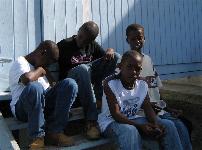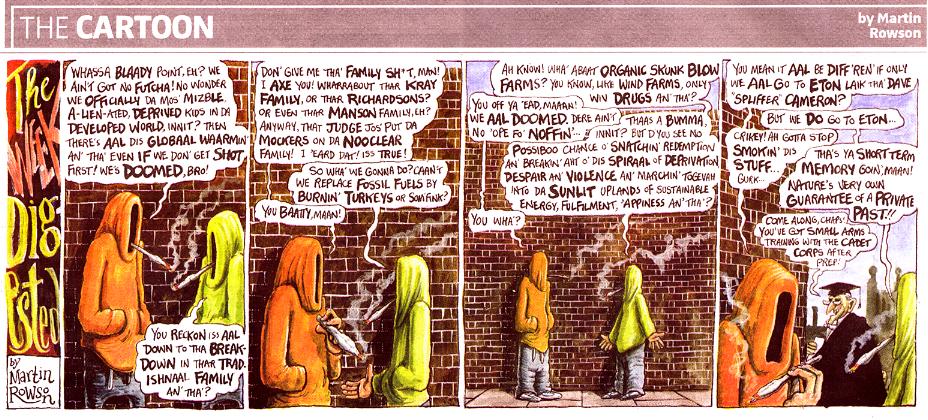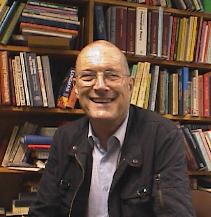
The Diocese of Liverpool
| Tuesday 27 February 2007
| Chromosomal abnormalityBrowsing through Bert Vaux’s American Dialect Survey results (blog, 22 June 2006), I was struck by the findings he reports for the word chromosome. I had not previously been aware that anyone pronounced it with a /z/ rather than /s/ at the beginning of the last syllable, and this is a pronunciation I did not show in LPD. Nor is it to be found in EPD or ODP. But Bert reports that the majority (AmE: plurality) of his respondents preferred /z/. More precisely, 36% preferred /s/, 43% preferred /z/, and 21% thought both were acceptable. This was with just over eleven thousand respondents, an enormous number. And 0.3% (which must be 37 people) answered ‘other’: you really have to wonder what other sound that could be. /ʃ/? /θ/? /dʒ/?
The Merriam-Webster on-line paid-for ‘Unabridged Dictionary’ gives only /s/, but the ‘Unabridged Collegiate’ gives both /s/ and /z/. (I suppose this means that the first is the 1963 dictionary generally known as Webster’s Third International, whereas the latter is the frequently revised Webster’s Collegiate. That would explain why the smaller dictionary seems to have the more up-to-date pronunciation entries.)
I wonder if people do the same thing with chromosomal as in chromosome. According to the Collegiate, they do.
A pronunciation that the Webster dictionaries do not have, but which I keep hearing from the mouths of witnesses on the American TV show Judge Judy (blog, 1 Aug 2006), is promissory with /-seri/ instead of the expected /-sɔːri/. (The lawsuits she presides over are big on promissory notes.) But Google gives only forty-two thousand hits for the corresponding spelling promissary, as against eleven and a half million for promissory.
| 
red dots = /s/, blue dots = /z/,
green dots = both OK

Bert Vaux
|
| Monday 26 February 2007
| The Gettysburg addressAbraham Lincoln’s Gettysburg Address was delivered at the dedication of the Soldiers’ National Cemetery in Gettysburg, Pennsylvania, on 19 November 1863, during the American Civil War, four and a half months after the Battle of Gettysburg. Its resounding final words are
that government
of the people, by the people, for the people,
shall not perish from the earth.
What do you suppose was the intonation that he used at the end of his peroration? With repeated items like people here, the usual thing in English is to deaccent the word: first in anticipation of repetition, then in recognition of repetition. So people usually declaim these words as
that government
'of the people, | 'by the people, | 'for the people, |
shall not 'perish from the 'earth.
But when I was a schoolboy my history teacher claimed that that was not the right way to say it. Instead, he thought there ought to be a repeated accenting of people:
that government
of the 'people, | by the 'people, | for the 'people, |
shall not 'perish from the 'earth.
That is certainly an option the speaker would have had. We can repeat ourselves for emphasis, giving the same information more than once, and presenting it afresh each time, focusing on it anew. Arguably, Lincoln wanted to focus and refocus on the importance of democracy.
Lincoln delivered his address before the days of sound recording. So we shall never know whether my history teacher was right or not.
| 
|
| Friday 23 February 2007
| Guillain-Barré
You have probably heard of, or read about, a distressing disease known as Guillain-Barré syndrome, aka acute inflammatory demyelinating polyneuropathy. It’s an autoimmune condition affecting the peripheral nervous system, usually triggered by an infection.
The question is, how do we pronounce it? It is named after the two French doctors who discovered its key diagnostic features, Georges Guillain and Jean Alexandre Barré. So its name illustrates the problem of how to anglicize words and names from French. It’s the first of them that gives rise to a problem.
If you asked me how I pronounce Guillain in English, I’d have said /ˈɡiː(j)æ̃/. (French nasalized vowels have sort of guest status in English. I’m a bit dubious about whether we can really justify the /j/ there, since it’s not in conformity with English phonotactics. Compare French names such as Meillet, which in French is [mɛjɛ] and in English (for me) /ˈmeɪ(j)eɪ/.)
The OBGP gives the highly implausible form /ˈɡɪjɛ̃/, which is impossible in English (since you can’t have a stressed syllable ending in /ɪ/ and /j/ can only be syllable-initial) and impossible in French (since French has no /ɪ/).
The Merriam-Webster Unabridged gives /ɡiːˈjæ̃/. Americans use final stress on French names.
We’re all wrong, at least as far as French is concerned.
Speakers of English routinely treat the French spelling (i)ll as standing for [j]. But that’s not always so in French: it applies only when the following letter is one of e, i, y (and not even always then) — which is not the case here. The true French pronunciation of Guillain has not [j] but [l]. The name is actually pronounced in French as [ɡilɛ̃].
The GBS Support Group recommends the pronunciation "Ghee-lan" (i.e. /ˈɡiːlæn/). Perhaps they know better than the BBC Pronunciation Unit and people who once did some French.
| 
|
| Thursday 22 February 2007
| More counterpresuppositionals
Tamikazu Date sends some more examples of anomalous tonicity, similar to yesterday’s:
(1) A: If something's right, how can it be a waste of time?
B: There is no right or wrong. There's only opinion.
(2) A: We'll transplant a new kidney.
B: In this hospital, no organs will be transplanted.
(Gussenhoven 1983: 39)
(3) A: I'm afraid your check to us this month will be rather large.
B: There will be no check, Miss Minchin.
A: (in surprise) Excuse me?
(A Little Princess)
(4) A: I'm putting your son on a two-day suspension.
But next time he will be expelled.
B: There will not be a next time. I promise you that.
(Music of the Heart)
(5) A: The bridge will be blown, Pablo. And after that, we...
B: Why, you think there will be an afterwards?
(For Whom The Bell Tolls)
Yep, in each case the second speaker rejects (counters) something (a presupposition) implied by the first speaker. And in doing so the second speaker puts the nucleus on the verb to be. Weird, but that’s how it is.
| 
Tamikazu Date
|
|
While we’re \/on the topic of intonation,| here’s something I overheard in the playground of a primary school in Montserrat.
A no \/me
is not me
'It wasn't me!'
The point is that the grammar is the local Creole, but the intonation is English. It is the same pattern as I would use myself, with he same pragmatic meaning: a fall-rise on a negative statement (English Intonation, p. 31). This is a distinctively English pattern, which does not seem to be used with this meaning in (most) other languages. It reinforces my view that Caribbean English creoles are best considered dialects of English, not separate languages.
| 
Boys at Brades Primary School, Montserrat
|
| Wednesday 21 February 2007
| Anomalous tonicity again
Tsutomu (Steve) Akamatsu of the U. of Leeds writes to draw attention to two cases of unexpected nucleus placement in English — unexpected, that is, from the point of view of a speaker of Japanese and not predicted by the general rules governing English tonicity.
His first example is this.
A. Did you see pretty flowers in his garden?
B. There were no flowers there.
Now this is actually a poor example, because native speakers of English just don’t say things like A’s line above. At the very minimum, we would insert any before pretty. More likely, we would say something along the lines of What did you think of his garden? Were the flowers any good?. But no matter: the general point is clear. In B’s reply, logic would seem to call for the nucleus to go on no. So why does it go on were?
Here’s another example of the same sort of thing.
(i) I wanted some cheese, | but there was no cheese.
Why doesn’t the nucleus go on no?
Some other wordings one might have chosen are these:
(ii) I wanted some cheese, | but they didn’t have any.
(iii) I wanted some cheese, | but there wasn’t any.
Why aren’t (i) and (ii) treated as marked negatives, with the nucleus on the negative word, no and didn’t respectively? (In (iii) there is presumably nowhere else for the nucleus to go, so here it does go on the negative word.)
These are, I think, further instances of ‘counterpresuppositional insists’, which we discussed in the blog for 23-24 November 2006. It’s probably best to think of their intonation as just idiomatic.
Steve’s other example is
I don’t know who did it.
where he would have expected
I don’t know who did it.
parallel to the Japanese equivalent
Dare ga shita ka shirimasen
Who TOPIC did QUERY don't_know
(A nucleus on who is of course possible. But it’s marked. The unmarked tonicity has the nucleus on did.)
But here I think it is perhaps Japanese that is idiomatic, in accenting the question word dare (‘who’). English follows the regular rule of accenting the last new lexical item, which in the absence of any explicit pragmatic context is do.
| 
Tsutomu (Steve) Akamatsu
|
| Tuesday 20 February 2007
| Accent caricatures
Every year when I was teaching the undergraduate English Accents course at UCL I used to set an assignment based on a Posy cartoon. It dated from 1984, and depended for its point on the then current perceptions of how young people speak. Its young male protagonists came from an upper-middle-class background, but had adopted a pseudo-Cockney (Estuary English?) way of speaking, caricatured by the artist.
Here now, for comparison, is a Martin Rowson cartoon from last weekend’s Independent on Sunday newspaper. It is interesting evidence of the changes that are perceived as having taken place over a quarter of a century that separates the two cartoons.
|
|

|
|
| Rowson’s cartoon, like Posy’s, has one or two instances of ‘eye dialect’ — spellings that do not in themselves imply any pronunciation differing from the one that would be implied by standard spelling. But by writing futcha for future /ˈfjuːtʃə/, bumma for bummer /ˈbʌmə/, the artist is signalling the presence of other, unspecified non-standard pronunciation features that perhaps could not be shown directly in spelling.
The cannabis-smoking hoodies in the cartoon (who we discover in the last frame are actually pupils at Eton) are shown as talking in ‘London Jamaican’ or ‘Jafaikan’, the dialect based on, but different from, the Jamaican Creole spoken in Jamaica, and the dialect that now gives you street cred in teenage London.
So we have elements of Creole grammar such as zero copula (we officially da mos' mizble; you off ya 'ead, maaan). Alongside this we have the all-purpose question tag innit?, which is used by black Londoners but not by Jamaicans in Jamaica. The definite article the before a consonant is represented not as its Creole form /di/ di or de but as da, tha, thar /də, ðə/, which is either Cockney th stopping or just eye dialect. The metathesized axe for ask, despite its venerable history in English rural dialects, has reentered London speech from West Indian sources. H dropping (no 'ope), th fronting (noffin', wiv), and l vocalization (possiboo) are familiar London accent characteristics.
As for you baatty, man, is this a blend of you’re batty (crazy), man and you batty-man (homosexual, Jamaican)? Neither reading seems particularly relevant, and neither justifies the double-a spelling. Perhaps the point is that the Etonians are not being terribly successful in their attempts at Jafaikan.
|
|
| Monday 19 February 2007
| My hands, mine hands
When I asserted (blog, Friday), that
People said and wrote mine if the following word began with a vowel or /h/, and my otherwise. This is the usage throughout Shakespeare (1564-1616), the Authorized Version of the Bible (1611), and the Book of Common Prayer (1662).
— I was guilty of over-generalization. My statement was much too sweeping. Yes, in Early Modern English we get my before a consonant and mine before a vowel; but before /h/ usage is divided.
Even this rule is too simple. Martin Barry of the U. of Manchester, who besides being a phonetician is also a cathedral choirmaster, writes to say, “Your blog entry ... made me think of the carol with the refrain "Lullay, mine liking, my dear son ... mine own dear darling". I believe it's 15th century. I wonder why we get 'mine' before /l/ and 'my' before /d/?”
Good question, and I can only assume that even in the 15th century one could use language which was already then archaic, with mine before a consonant. Perhaps the fact that /l/ is a sonorant helped.
Jack Windsor Lewis, whose Phonetiblog continues sporadically, writes, “I'm inclined to wonder whether the dropping of initial /h/ from unstressed words which we hear today happening only with unstressed weakform words happened from the thirteenth to the eighteenth centuries with a lot more words. In fact there could well've been a load of people whose speech was "received" but joined the common folk in eschewing /h/. The 1611 and earlier versions of the Bible have quite a lot of otherwise mystifying sequences. With items like mine host no doubt it can be explained that host hadn't yet had its /h/ restored after being borrowed aitchless from French like many words other than hour, heir, honour, honest etc.”
Alerted by these two correspondents, I have done penance by going carefully through Psalms 1-25 in both the Prayer Book and the Authorized Version, looking particularly for my/mine before /h/. What I found was that before /h/ my actually predominates in these two sources, although mine is also found. Psalm 18 is particularly striking, in the Prayer Book version:
1 I will love thee, O Lord, my strength; the Lord is my stony rock, and my defence: my Saviour, my God and my might, in whom I will trust, my buckler, the horn also of my salvation, and my refuge.
2 I will call upon the Lord, which is worthy to be praised: so shall I be safe from mine enemies. ...
20 ...according to the cleanness of my hands shall he recompense me. ...
24 ...according unto the cleanness of my hands in his eye-sight. ...
34 He teacheth mine hands to fight: and mine arms shall break even a bow of steel. ...
Verses 1 and 2 nicely establish the basic rule: my before consonants, mine before vowels. Verses 20, 24, and 34 show the inconsistency of usage before a following /h/: the same word, hands, is preceded first by my and then by mine.
In the Authorized Version, this psalm has my hands each time.
In Psalm 3, on the other hand, the Prayer Book has
3 But thou, O Lord, art my defender: thou art my worship, and the lifter up of my head.
where the Authorized Version has
3 But thou, O Lord, art a shield for me; my glory, and the lifter up of mine head.
(I’ve taken the PB quotes from a printed copy of the Book of Common Prayer given to me by my father fifty-five years ago. But for the AV I have relied on a web source, which I assume to be reliable.)
I wish I knew more about the history of English.
| 
Martin Barry


Jack Windsor Lewis
|
| Friday 16 February 2007
| Mine eyes have seen
We all know the opening lines of The Battle Hymn of the Republic:
Mine eyes have seen the glory of the coming of the Lord;
He is trampling out the vintage where the grapes of wrath are stored...
Given that these words were written in 1861, we may well ask why it begins Mine eyes rather than My eyes, which is what everyone writes and says today, and indeed wrote and said in the Victorian era.
From the thirteenth to the eighteenth centuries, my [maɪ] and mine [maɪn] were in complementary distribution as possessive adjectives before a noun. People said and wrote mine if the following word began with a vowel or /h/, and my otherwise. This is the usage throughout Shakespeare (1564-1616), the Authorized Version of the Bible (1611), and the Book of Common Prayer (1662).
Nowadays, though, as the OED puts it, mine qualifying a following noun is “only arch. or poet. before a vowel or h; otherwise superseded by my”.
So Julia Howe, the writer of this hymn, was indulging in arch[aic] or poet[ic] language, which I suppose is fair enough. No doubt she was also echoing the words of Psalm 121 in the Prayer Book, I will lift up mine eyes unto the hills. Other hymn writers of this period, though, didn’t hesitate to write my anchor and my heart.
The OED adduces a quotation from Swift’s Gulliver’s Travels, dated 1726:
Till I had gotten a little below the level of mine eyes.
But that’s their latest citation for mine before a noun. Anything more recent is indeed consciously archaic — either poetic (up to about a hundred years ago), or religious, or else jocular, as when you call an innkeeper mine host.
| 
Mine eyes have seen the glory

Mine host
|
| Thursday 15 February 2007
| ICPhS Saarbrücken
The most important big international phonetics get-together, the International Congress of Phonetic Sciences, takes place only once every four years. The next one, number sixteen in the series, will be held in August this year, in Saarbrücken in Germany.
This is to remind anyone thinking of submitting a paper that the deadline for submission is 28 February, so less than two weeks away. And unlike previous occasions, for this conference you have to submit the full paper, not just an abstract. So get writing! Update: the deadline has just been extended to 7 March.
The first ICPhS I attended was also in Germany, forty-three years ago, in Münster. (Re-reading the paper I read there, I now cringe. But I was very young.) If I attend the Saarbrücken congress, as I hope to, it will be my tenth ICPhS.
“The town of Saarbrücken has been chosen to represent the German consortium hosting the conference, both because its university offers a degree course in Phonetics and because of its central location in Europe. We hope the latter will contribute to the Congress having as much a European as a German atmosphere.”
If you visit the Saarbrücken website, at this moment you will find it obsessed by the alleged misuse of yellow rubbish sacks (AmE: trash bags). I hope it will be something else by August. Update: This refers to what you would have found had you visited that website on 15 February. Saarbrücken is of course a delightful town to visit: it hosts the annual Saarland Music Festival, which is devoted to Nordic
music this year, and has Art Museums and a State Theatre (with plays,
opera and ballet). There are Celtic and Roman archeological sites in the
region. I am happy to make this clear to anyone upset by my previous reference.
| 

Saarbrücken: the Rathaus tower
|

















